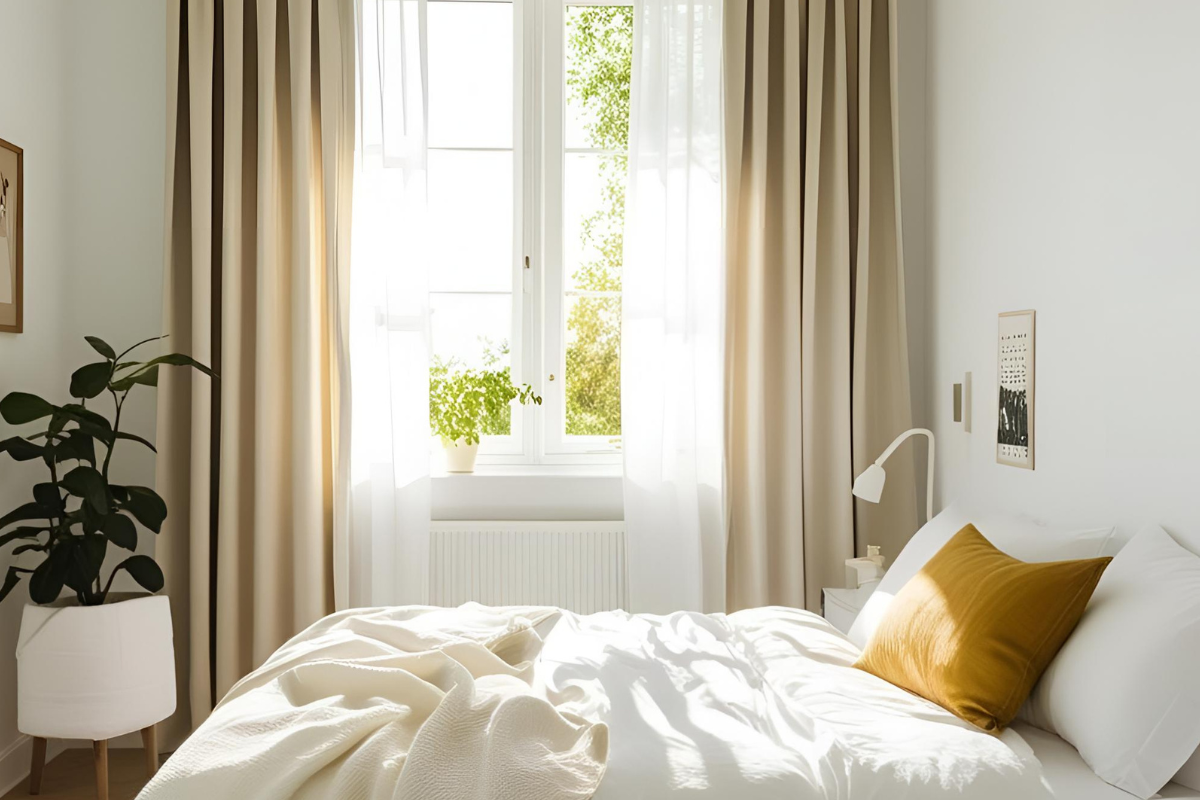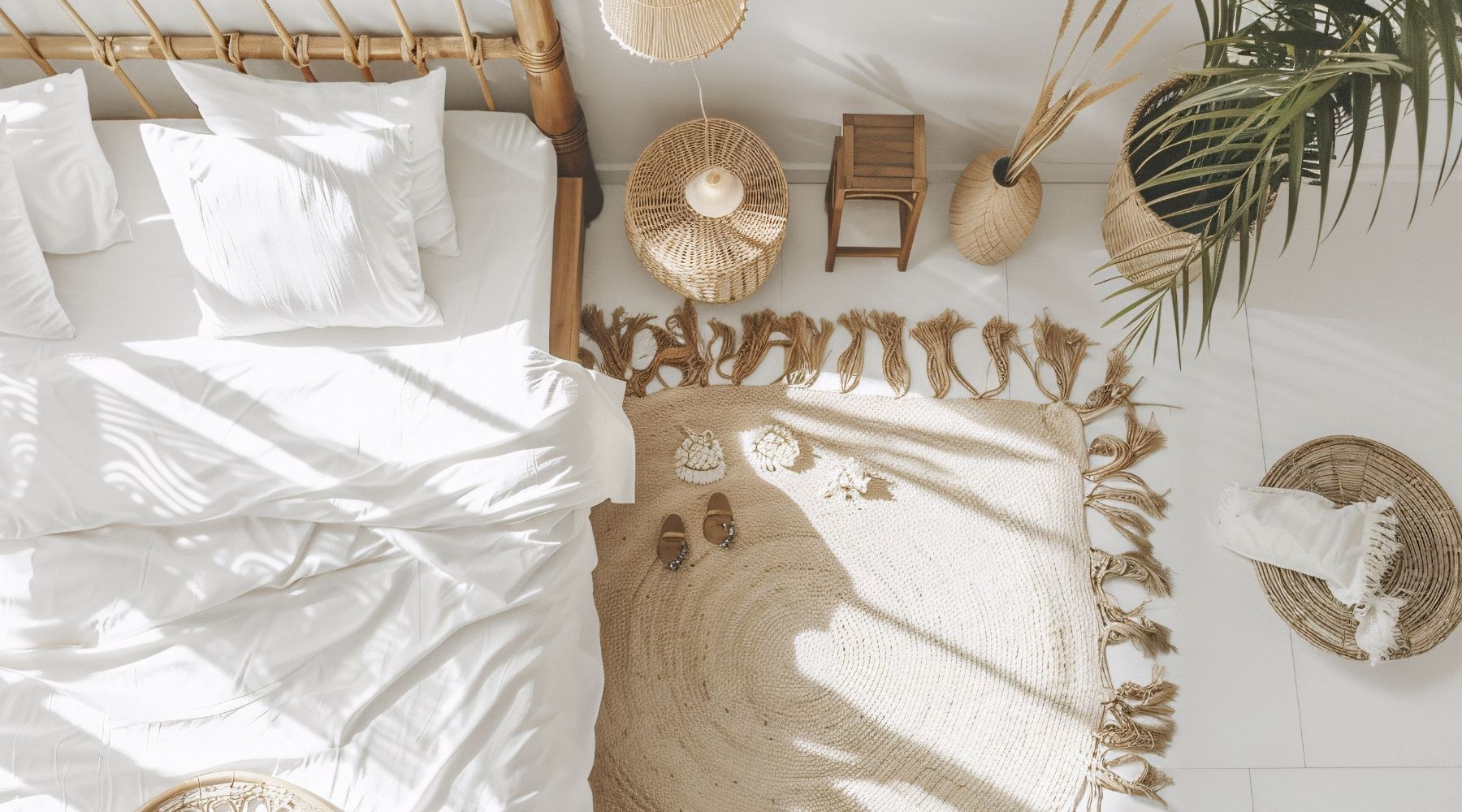The Bedding Choice That Says More About You Than You Think
Let’s face it - your comforter isn’t just something you toss on the bed. It’s where you end your day, recover your energy, and (hopefully) sleep deeply. But comfort isn’t the only factor anymore. As conscious consumers, we’re waking up to the true cost of the materials we live with - especially the ones we sleep under.
In this article, we’re diving deep into a critical comparison: bamboo comforters vs. traditional down comforters. Which delivers better sleep? Which is healthier? And which supports a truly sustainable future?
If you’ve been looking for a smarter, more sustainable way to stay cozy at night, this guide will help you make a more aligned choice - for your health, your values, and the planet.
What Is a Bamboo Comforter?
Bamboo comforters, like the ones crafted by Ethical Bedding, are filled with a blend of bamboo-derived fibres and recycled materials.
Key Benefits of Bamboo Comforters:
- Hypoallergenic and gentle on sensitive skin
- Moisture-wicking to regulate body temperature
- Naturally antibacterial and odor-resistant
- Eco-conscious: made with renewable and recycled materials
A bamboo comforter is more than soft - it's smart. It supports your well-being and the planet, while providing cloud-like comfort night after night.
What Is a Down Comforter?
Down comforters are filled with the under-feathers of ducks or geese. Traditionally prized for their warmth and fluffiness, down has long been the go-to for luxury bedding.
But here’s the uncomfortable truth: many down comforters are made using live-plucked feathers. That’s as painful as it sounds. Even when responsibly sourced, down production has a sizable environmental and ethical footprint.
Drawbacks of Traditional Down:
- Can trigger allergies due to trapped dust and mites
- Often requires dry cleaning
- Not vegan or cruelty-free
- Overheating is common
- Lacks transparency in sourcing practices
- If warmth is your only metric, down performs. But in every other category - health, ethics, sustainability - it comes up short.
Sustainability: Which One Respects the Planet?
Bamboo Comforters Lead with Purpose
Bamboo is one of the most renewable resources on the planet. It grows rapidly without the need for pesticides, fertilizers, or excessive water. Our bamboo comforters take it a step further - using recycled plastic bottles in the filling to divert waste from landfills.
Environmental Benefits of Bamboo Comforters:
- Bamboo crops use up to 90% less water than cotton
- Our comforters save approx. 50 plastic bottles per unit
- No animals harmed in the making - zero down, zero cruelty
- Closed-loop production means less chemical waste
Down’s Heavy Footprint
By contrast, traditional down comforters have a significant environmental toll:
- Down farming contributes to water pollution
- Transporting and sterilising feathers adds carbon emissions
- Animal farming is a major greenhouse gas contributor
- When you choose a bamboo comforter, you choose a lower-impact, higher-purpose product. That matters.
Health & Allergies: Which Keeps You Sleeping Clean?
Bamboo Is a Breath of Fresh Air
For allergy sufferers or anyone with sensitive skin, bamboo is a game-changer. It’s naturally hypoallergenic and resists dust mites, mildew, and bacteria without needing chemical treatments.
Why Bamboo Comforters Are Healthier:
- Naturally antimicrobial
- Chemical-free production
- Gentle on skin and sinuses
Down Can Weigh You Down
Feathers trap moisture and allergens easily. Even "hypoallergenic down" comforters can harbor mold and mites over time. If you’ve ever woken up congested or itchy, your comforter might be the culprit.
Comfort & Temperature: Which Sleeps Cooler?
Bamboo = Thermoregulation Masterclass
Thanks to the breathable shell (usually made from eucalyptus or bamboo lyocell), bamboo comforters regulate temperature better than almost any other material. You stay warm without overheating - ideal for hot sleepers or summer nights.
Down = Hit or Miss
Down is undeniably warm - but sometimes too warm. It lacks the breathability that makes bamboo a better all-season option. If you live in a climate with wide seasonal swings, bamboo offers more versatility.
Care & Longevity: Which Lasts Longer with Less Effort?
Bamboo Comforters Are Low Maintenance
Durability is another win for bamboo. Ethical Bedding's bamboo comforters are machine washable and hold their shape over time. They’re designed to get softer with each wash- without breaking down.
Down Comforters Require More Fuss
You’ll likely need to dry clean a down comforter, which adds cost and environmental strain. Feather fill can clump, degrade, and develop odors if not meticulously maintained.
The Ethical Dimension: Which Reflects Your Values?
If you believe in ethical consumerism, this comparison is crystal clear.
- Bamboo Comforters: Plant-based, cruelty-free, ethically produced
- Down Comforters: Animal-derived, potentially cruel, limited transparency
A bamboo comforter isn’t just a purchase - it’s a stand for a better future. One that respects life, minimises waste, and aligns with a more conscious way of living.
The Final Verdict: Choose Better Sleep That’s Better for the Planet
In the battle of bamboo comforters vs. traditional down, bamboo wins on every front:
- Comfort & breathability
- Allergy-friendly
- Sustainable & ethical
- Low maintenance
- Vegan and cruelty-free
Whether you’re looking for an upgrade in comfort, or you’re ready to align your home with your values, a bamboo comforter is the future of conscious sleep.
Ready to Make the Switch?
Explore our collection and experience the softest, smartest sleep solution on the market. You’ll rest easy - knowing your comforter is kind to your skin, the planet, and the creatures we share it with.








Share:
Best Bamboo Comforter Buying Guide: What to Know Before You Shop
Why Eucalyptus Silk Pillowcases Are the Ultimate Solution for Frizz, Wrinkles, and Irritated Skin